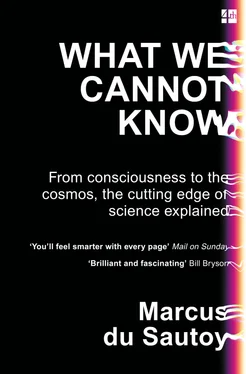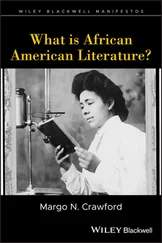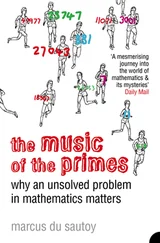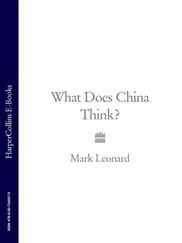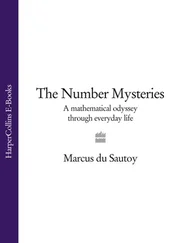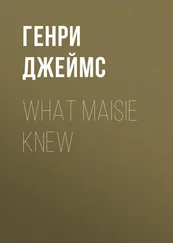It is, of course, very risky at any point in history to try to articulate Things We Cannot Know. How can you know what new insights are suddenly going to pull the unknown into the knowable? This is partly why it is useful to look at the history of how we know the things we do, because it reveals how often we’ve been at points where we think we have hit the frontier, only to find some way across.
Take the statement made by French philosopher Auguste Comte in 1835 about the stars: ‘We shall never be able to study, by any method, their chemical composition or their mineralogical structure.’ An absolutely fair statement given that this knowledge seemed to depend on our visiting the star. What Comte hadn’t factored in was the possibility that the star could visit us, or at least that photons of light emitted by the star could reveal its chemical make-up.
A few decades after Comte’s prophecy, scientists had determined the chemical composition of our own star, the Sun, by analysing the spectrum of light emitted. As the nineteenth-century British astronomer Warren de la Rue declared: ‘If we were to go to the Sun, and to bring some portions of it and analyse them in our laboratories, we could not examine them more accurately than we can by this new mode of spectrum analysis.’
Scientists went on to determine the chemical composition of stars we are unlikely ever to visit. As science in the nineteenth century continued to give us an ever greater understanding of the mysteries of the universe, there began to emerge a feeling that we might eventually have a complete picture.
In 1900 Lord Kelvin, regarded by many as one of the greatest scientists of his age, believed that moment had come when he declared to the meeting of the British Association of Science: ‘There is nothing new to be discovered in physics now. All that remains is more and more precise measurement.’ American physicist Albert Abraham Michelson concurred. He too thought that the future of science would simply consist of adding a few decimal places to the results already obtained. ‘The more important fundamental laws and facts of physical science have all been discovered … our future discoveries must be looked for in the sixth place of decimals.’
Five years later Einstein announced his extraordinary new conception of time and space, followed shortly after by the revelations of quantum physics. Kelvin and Michelson couldn’t have been more wrong about how much new physics there was still to discover.
What I want to try to explore is whether there are problems that we can prove will remain beyond knowledge despite any new insights. Perhaps there are none. As a scientist that is my hope. One of the dangers when faced with currently unanswerable problems is to give in too early to their unknowability. But if there are unanswerables, what status do they have? Can you choose from the possible answers and it won’t really matter which one you opt for?
Talk of known unknowns is not reserved to the world of science. The US politician Donald Rumsfeld strayed into the philosophy of knowledge with the famous declaration:
There are known knowns; there are things that we know that we know. We also know there are known unknowns; that is to say, we know there are some things we do not know. But there are also unknown unknowns, the ones we don’t know we don’t know.
Rumsfeld received a lot of stick for this cryptic response to a question fired at him during a briefing at the Department of Defense about the lack of evidence connecting the government of Iraq with weapons of mass destruction. Journalists and bloggers had a field day, culminating in Rumsfeld being given the Foot in Mouth award by the Plain English Campaign. And yet if one unpicks the statement, Rumsfeld very concisely summed up different types of knowledge. He perhaps missed one interesting category: The unknown knowns. The things that you know yet dare not admit to knowing. As the philosopher Slavoj Zizek argues, these are possibly the most dangerous, especially when held by those with political power. This is the domain of delusion. Repressed thoughts. The Freudian unconscious.
I would love to tell you about the unknown unknowns, but then they’d be known! Nassim Taleb, author of The Black Swan , believes that it is the emergence of these that are responsible for the biggest changes in society. For Kelvin it was relativity and quantum physics that turned out to be the unknown unknown that he was unable to conceive of. So in this book I can at best try to articulate the known unknowns and ask whether any will remain forever unknown. Are there questions that by their very nature will always be unanswerable, regardless of progress in knowledge?
I have called these unknowns ‘Edges’. They represent the horizon beyond which we cannot see. My journey to the Edges of knowledge to articulate the known unknowns will pass through the known knowns that demonstrate how we have travelled beyond what we previously thought were the limits of knowledge. This journey will also test my own ability to know, because it’s becoming increasingly challenging as a scientist to know even the knowns.
As much as this book is about what we cannot know, it is also important to understand what we do know and how we know it. My journey to the limits of knowledge will take me through the terrain that scientists have already mapped, to the very limits of today’s cutting-edge breakthroughs. On the way I will stop to consider those moments when scientists thought they had hit a wall beyond which progress was no longer possible, only for the next generation to find a way, and this will give us an important perspective on those problems that we might think are unknowable today. By the end of our journey I hope this book will provide a comprehensive survey not just of what we cannot know but also of the things we do know.
To help me through those areas of science that are outside my comfort zone, I have enlisted the help of experts to guide me as I reach each science’s Edge and to test whether it is my own limitations, or limitations inherent in the questions I am tackling, that make them unknowable.
What happens then if we encounter a question that cannot be answered? How does one cope with not knowing? Dare I admit to myself that some things will forever remain beyond my reach? How do we as a species cope with not knowing? That is a challenge that has elicited some interesting responses from humans across the millennia, not least the creation of an idea called God.
There is another reason why I have been driven to investigate the unknowable, which is also related to my new job. The previous incumbent of the chair for the Public Understanding of Science was a certain Richard Dawkins. When I took over the position from Dawkins I braced myself for the onslaught of questions that I would get, not about science, but about religion. The publication of The God Delusion and his feisty debates with creationists resulted in Dawkins spending a lot of the later years of his tenure debating questions of religion and God.
So it was inevitable that when I took up the chair people would be interested in my stance on religion. My initial reaction was to put some distance between myself and the debate about God. My job was to promote scientific progress, and to engage the public in the breakthroughs happening around them. I was keen to move the debate back to questions of science rather than religion.
As a strategy to deflect the God questions I actually admitted that I was in fact a religious man. Before journalists got too excited, I went on to explain that my religion is the Arsenal. My temple is the Emirates (it used to be Highbury Stadium) in north London, and each Saturday I worship my idols and sing songs to them. And at the beginning of each season I reaffirm my faith that this will be the year we finally win some silverware. In an urban environment like London, football has taken over the role that religion played in society of binding a community together, providing rituals that they can share.
Читать дальше
